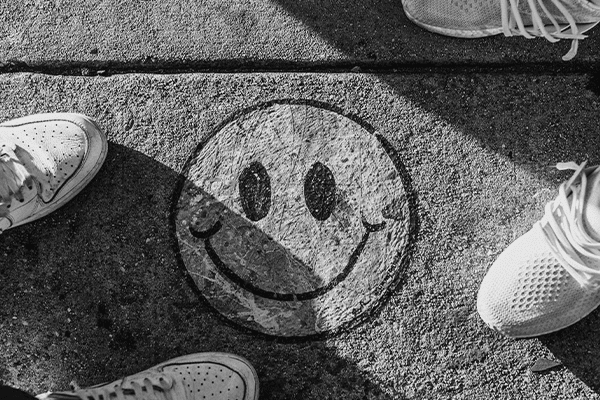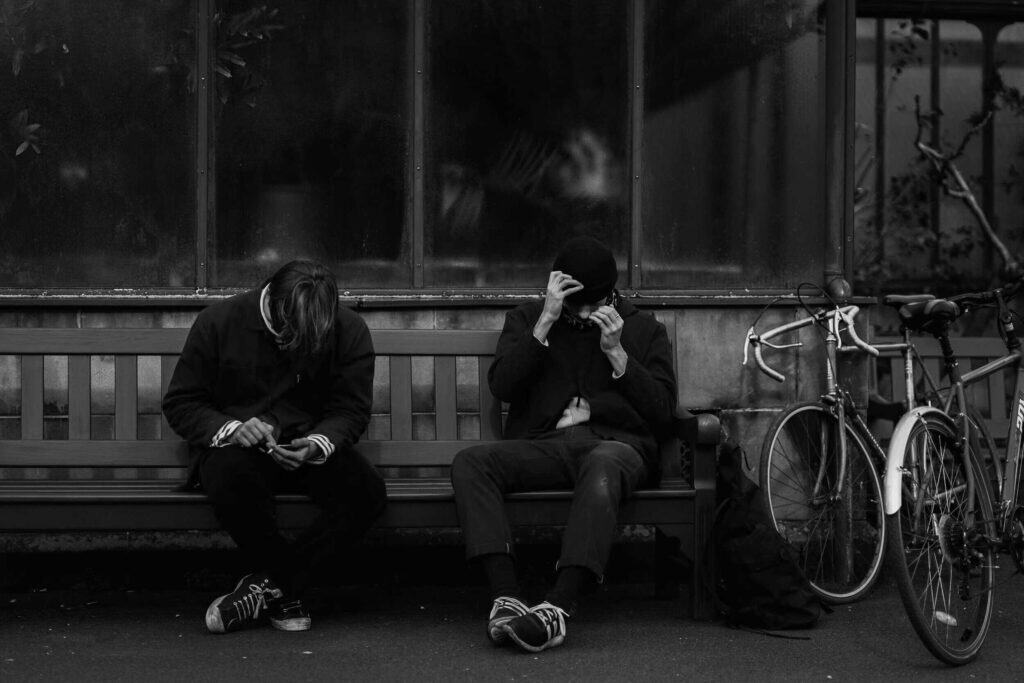Gen Z + The Future of Health


Want to know what the future of health looks like? Turn to Gen Z
Report: September – December 2019
We talked with 100 Gen Zers on the street, and 1,000 in a nationwide quantitative study to better understand their views on health, wellness and the future of healthcare. If there’s one thing that’s obvious: they’re going to disrupt everything we know about health and wellness.
We learned that their health and wellness is their number one priority. That’s why we’re calling them Gen Well. In our analysis, we identified four forces that influence this generation and how they live their life.

In our research, we learned that their health and wellness is their number one priority. That’s why we’re calling them Gen Well. To them, their health is more than a vital sign — it’s integrated into everything they do. As a generation growing up in a disparate state of chaos with social pressures and anxiety, their own health and wellness is a constant they can control. And they’re taking that control to a whole new level by monitoring their baseline happiness, leveraging their health data from their wearable devices, and consciously making health decisions — from the grocery store to the dorm room.
We are witnessing the first generation in a long time who is united in a common mission: to be well.
However, with coronavirus altering their lives in numerous ways, and a global pandemic changing the health of entire populations, this generation is being hit particularly hard with mental health issues. According to a CDC study, young adults between the ages of 18 to 24 are reporting high levels of anxiety and depression related to the pandemic. As a society, we need to provide this generation with support, tools and services that will help them navigate through their mental health and whatever happens after this pandemic.
Force #1: Interdependence
Gen Z lives in an interdependent world — everything they do is connected to health. Seamlessly, they’ve integrated their daily rituals into their lives, allowing them to live proactively well.
When I think of health and wellness, I don’t necessarily just think of exercise and working out. I think of a more holistic definition of health…I make sure I am meditating and I have healthy thoughts and I’m sweating and I’m being active. I’m thinking about it all the time. – Sydney
This generation is one that feels healthy. In fact, over 70% of Gen Wellers describe their current state as healthy. That’s partly thanks to medical advancement, better tech, and better public education on health. When asked what health-related actions they take, Gen Wellers mentioned exercise and preventative care more than anything else.
They’re being taught how to meditate in kindergarten, and focusing on their mental health doesn’t slow down. Health check-ups are no longer an hour appointment on a calendar with a general practitioner in a doctor’s building. They are constant — from on their screens with a new doctor to the mental space they choose to occupy in that moment.
Nearly half (45%) of Gen Wellers use wearable devices to monitor their health. They close their rings, track their sleep, and compete with close friends on workout goals. They’re also using apps like Daylio to track everything from how they’re feeling mentally and emotionally, to what’s physically aching and how much water they’re consuming. Daylio then uses the data and discovers hidden patterns to help its users create useful habits like waking up earlier or cutting back on alcohol consumption. Their affinity for apps like Daylio signals a need for a high level of user experience and data visualization. But it’s not enough to make beautiful apps and websites — it needs to be about them.
Companies like Outdoor Voices, with a simple brand message that resonates with people out recreating who may not be mega-athletes, or Tone It Up, an online workout community that focuses on at-home workouts, help this generation be and feel healthy no matter who they are or where they are.
Force #2: Resilience
As a generation marked by its ability to adapt, Gen Well prioritizes mental and physical health equally and both are central to being well. This generation embodies resilience. They’re dealing with a world that is rapidly changing (i.e. active shooter drills at school, a pandemic, climate change) they are constantly iterating, yet they stay true and honest to themselves when it comes to their mental wellness. Nearly all (75%) of Gen Zers are open to talking about the state of their mental health and they are 27% more likely to report that their mental health is fair or poor compared to other generations.
Anxiety has overtaken depression as the most common reason Gen Well seeks mental health help. Over half (52%) admit that they are constantly stressed. But they’re self-teaching and deploying their own coping techniques. Even in high school they have health clubs and “VPs of Health” in their student government whose roles are to check in on the mental health of the student body. That’s because, with 72% saying that their most important health and wellness concern is managing their mental health, they’re already tuned in to what it takes to cope with or manage their own mental health.
I think about my mental health quite a bit. I try to keep my base level happiness … I feel like emotionally I react to a lot of different situations … You don’t want to think about your own thoughts. I want [my escape] default to be that base level. - Ryan
Universities and other brands are beginning to answer the call for mental health awareness among this generation. Just last year, Brigham Young University gave students free access to Sanvello, a mental health app that provides clinically validated techniques to manage stress, anxiety, and depression.
Today, they can open Snapchat and use its new “Here for you” tool that delivers content written by experts based on certain search terms that may trigger mental health concerns.
Force #3: Speculation
Truth detectives and investigators by nature, Gen Well will look for all of the facts and cancel brands or organizations that hide the truth. With an abundance of information at their fingertips, they don’t have to believe anything at face value. If this generation thinks that your brand isn’t telling the whole truth or doesn’t ladder back to their values, they’re not afraid to call BS. 52% of Gen Well consumers will transfer loyalty from one brand to another if the brand’s quality is not up to par. When we asked a Gen Zer in Boulder, Colorado if she thought a company like Walgreens could be considered a “health brand”, she said:
I used to [think that]. And then I saw the vaping things they were selling. And that was surprising for me. I feel like that’s not aligned with [their] mission. – Lucy
If there’s one thing that this cancel-culture trend suggests, it’s that this generation is breaking up with trust. Only 34% of Gen Zers trust what a company is telling them about health. They’re much more likely to turn to their parents, peers, and professional experts before they will trust what a company may be advising them to do regarding their health. About 70% of Gen Zers trust what healthcare professionals are telling them, yet barely over half of them even have a primary care physician.
One way to gain that trust back is authenticity, and today, an authentic brand is hard to come by. Brands — especially B2B companies — are engineered abstractions and this generation sees that as a shallow construct. By being authentic, brands can gain more authority.
A few brands that use an authentic voice, like The Cut or MorningBrew are cutting through the noise and reaching this hard-to-reach audience. For example, The Cut is dedicated to standing up for what they believe in and playing an active role in today’s most complex human issues — and this is obvious from their Instagram feed to their home page. MorningBrew has a dedicated following because they take complex topics on Wall Street and Silicon Valley and make it digestible for an average consumer in a way that feels like you’re talking to a friend across the table.
Force #4: Haptic
Living a life augmented by their technology, their reality exists in a “phigital” world on both sides of the screen. This generation grew up connected to 5 or more screens. They’re looking for blended experiences — experiences that are both online and offline. That’s why TikTok is so successful among this generation — they get to dance in the street with neighbors or family and bring it online and share it with their online friends, too.
This desire for blended experience manifests in health in the way Gen Zers want to access health. 50% of Gen Zers are accessing care in an alternative way — whether that’s a video chat with a therapist, a minute clinic, or a dispatch service like Dispatch Health — they’re looking for something beyond a traditional doctor’s visit.
Apps like Daylio really take this idea of a blended experience and encourage users to track their physical and mental symptoms every day to create beautiful data that helps them make better health decisions.
For my mental health I use Daylio. I track how I feel every day… I can evaluate and analyze the data I collect. For example, I haven’t been drinking for a week and feel super great. I like seeing these kinds of observations and correlations. Tracking what you actually do is very rewarding. – Julius
Since its inception, Warby Parker has embraced the blended world by allowing its customers to order five pairs of glasses online and let people try on their glasses at home, in the comfort of their own space. And, if they really need to, they can also stop in the store and try a pair on.
So what?
For Gen Well, health and wellbeing is weaved into the fabric of their everyday lives. From when they wake up in the morning and check how much they slept, to tracking their mood throughout the day, doing a workout on their phone and then visiting their therapist online, they are constantly checking in. Unlike other generations where health might be a once a year visit, for Gen Z health is constant. Every day. Every hour. Every minute. Brands, companies and employers that keep health at the forefront and do it in their own, authentic haptic way will win with this generation.
As strategists and marketers, it’s our responsibility to meet them where they’re at and also keep a holistic, haptic approach to health top of mind. Are we ready?